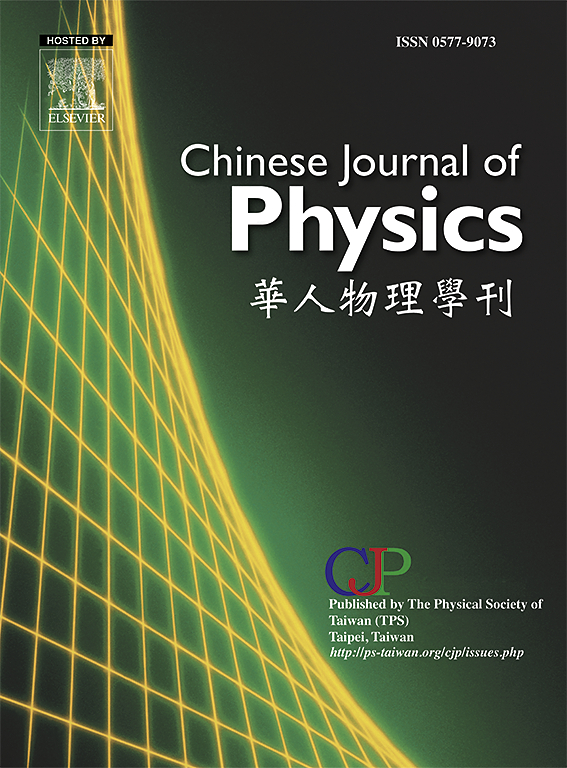Local error estimate of L1 scheme for time-fractional convection–diffusion–reaction equation on a star-shaped pipe network
IF 4.6
2区 物理与天体物理
Q1 PHYSICS, MULTIDISCIPLINARY
引用次数: 0
Abstract
It is a significant issue to study the discrete method for the time-fractional parabolic problem on the metric graph in scientific computation. In this paper, the time-fractional convection–diffusion–reaction problem with initial singularity on the metric star-shaped graph is considered. In order to overcome the weak singularity of the solution numerically, a L1-finite difference method over the metric graph is constructed by using the graded temporal mesh and uniform spacial mesh. More specific, L1 scheme is employed for temporal discretization of the Caputo fractional-derivative. Also, the finite difference method is proposed for spacial discretization by applying the technique of ghost points to discretize the Robin–Kirchhoff condition at the intersection point and the boundary conditions. Through this method, the second-order truncation accuracy in space is obtained. Over the entire star graph, a sharp error estimate of this full-discrete scheme at each time level is demonstrated. Meanwhile, the convergence analysis for a preserving Robin–Kirchhoff condition scheme at each time step is given. Numerical results are presented to confirm the sharpness of the theoretical analysis.

星形管网时间分数阶对流扩散反应方程L1格式的局部误差估计
研究度量图上时间分数抛物型问题的离散方法是科学计算中的一个重要课题。本文研究了度量星形图上具有初始奇点的时间分数型对流扩散反应问题。为了克服数值解的弱奇异性,采用时序网格和均匀空间网格构造了度量图上的l1 -有限差分法。更具体地说,L1格式用于卡普托分数阶导数的时间离散化。利用虚点技术对相交点和边界条件的Robin-Kirchhoff条件进行离散,提出了空间离散化的有限差分法。通过该方法,获得了空间上的二阶截断精度。在整个星图上,证明了在每个时间水平上这种全离散方案的尖锐误差估计。同时,给出了保持Robin-Kirchhoff条件格式在各时间步的收敛性分析。数值结果验证了理论分析的正确性。
本文章由计算机程序翻译,如有差异,请以英文原文为准。
求助全文
约1分钟内获得全文
求助全文
来源期刊

Chinese Journal of Physics
物理-物理:综合
CiteScore
8.50
自引率
10.00%
发文量
361
审稿时长
44 days
期刊介绍:
The Chinese Journal of Physics publishes important advances in various branches in physics, including statistical and biophysical physics, condensed matter physics, atomic/molecular physics, optics, particle physics and nuclear physics.
The editors welcome manuscripts on:
-General Physics: Statistical and Quantum Mechanics, etc.-
Gravitation and Astrophysics-
Elementary Particles and Fields-
Nuclear Physics-
Atomic, Molecular, and Optical Physics-
Quantum Information and Quantum Computation-
Fluid Dynamics, Nonlinear Dynamics, Chaos, and Complex Networks-
Plasma and Beam Physics-
Condensed Matter: Structure, etc.-
Condensed Matter: Electronic Properties, etc.-
Polymer, Soft Matter, Biological, and Interdisciplinary Physics.
CJP publishes regular research papers, feature articles and review papers.
 求助内容:
求助内容: 应助结果提醒方式:
应助结果提醒方式:


